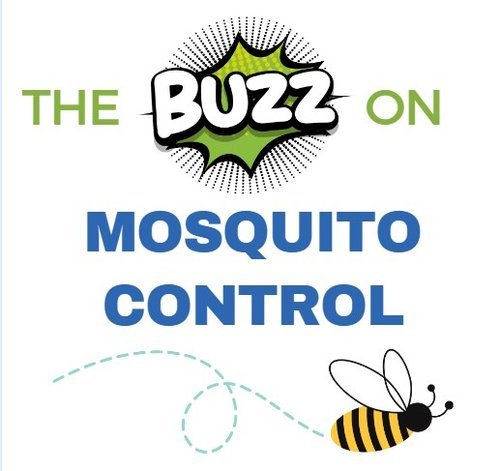Seasonal Spotlight
CHECK OUT THESE SMALL ACTIONS
You can take to MAKE A BIG DIFFERENCE!
SUMMER
The Buzz on Mosquito Control
Mosquito spraying kills bees, butterflies, and other beneficial insects. Worse? It’s not even the best way to reduce mosquitoes in your yard. Click the image to learn more, and consider sharing our flyer with neighbors and friends!
Watershed Stewards Academy is encouraged by the recent trend that more people are paying attention to pollinators and looking for alternative ways to control mosquitoes.
There's no perfect solution (yet!), but check out some of the options we've found below!
Bee Safe Mosquito Control is a new local business that offers a no-spray mosquito service focused on safer practices. Mention WSA for a $20 discount
Biogents Mosquito Traps - This innovative company offers mosquito traps as an alternative to spraying. It is used by WHO and the CDC to control Dengue and other diseases transmitted by mosquitos.
DIY a Doug Tallamy "bucket of doom" - this method involves a bucket, water, organic matter, and BTI mosquito dunks to control larvae before they become biting adults. Be sure to change the water around once a month. Click here or here for instructions.
Lemon Eucalyptus Oil - Studies have shown this plant-based ingredient is an effective mosquito repellant
Use a fan! Mosquitoes are weak flyers, so setting up a fan nearby will prevent them from landing on you!
If you've tried another promising method, let us know!
did you know?
You can opt-out of automatic mosquito spraying at your residence. If enough people in your community opt out, it will be excluded! Not sure if you need to? Click here to view the communities in Anne Arundel County that participated, as provided by the Maryland Department of Agriculture
Summer Stormwater
Next time a summer storm rolls through, look around at the stormwater gushing through gutters, flowing out of downspouts, moving across sidewalks, running along roadway curbs, and pouring into storm drains.
Rain falling on a pervious surface, such as a forest or a meadow, will soak into the ground or be used by the plants. Our rooftops and roadways are different. Rain falling on these impervious surfaces does not soak in. This rain picks up speed and pollution as it flows into drains and then into our waterways.
Stormwater runoff carries pollutants from many sources such as sediment, fertilizers, septic systems, pet waste, and livestock manure into the Bay. Click here to learn more about how these pollutants impacts the health of our waterways, and what pollution sources you could be contributing unknowingly.
The best way to reduce pollution from stormwater is to:
spread it out
Redirect your downspouts to a pervious surface, such as a native plant garden, conservation landscape, or permeable pavers.
soak it up
If you’re not sure where to begin, our programs and resources can help you Plant Native Plants and RePlant our area with native trees.
Is it safe to swim?
Recreational Water Quality Testing
Anne Arundel County is lucky to have over 533 miles of shoreline. Many people spend their summers swimming, boating, or otherwise enjoying the water. Several groups conduct regular water quality testing and share the results, so you know whether or not it is safe to swim: Check out the links below to see the latest results:
who do I call if….?
Worried about more than stormwater? The Anne Arundel County Bureau of Watershed Protection & Restoration can help!
Illicit Discharge causes water pollution by sending pollutants right into our streams, creeks and rivers. AACO BWPR locates sources by screening at least 150 storm drain outfalls annually. Report any suspicious activities or discharges near water bodies to local authorities to the County’s Environmental Hotline at 410-222-7171.
To report a water or sewer emergency call (410) 222-8400 24/7, 365 days a year
Anne Arundel County Department of Health
Arundel Rivers Federation
Magothy River Association
Maryland.gov
Severn River Association
Spa Creek Conservancy
Swim Guide
Map (zoom into your area)
sustainable summer
Eat Local:
Make a habit of going to your local farmers market or produce stand to get local fruits and vegetables instead of the grocery store. Here are some ways this makes a difference:
Reduces greenhouse gas emissions: Eating locally reduces long-distance transportation needs, decreasing greenhouse gas emissions, lowering air pollution, and conserving fossil fuel consumption.
Conserves resources: Local food systems typically require less energy for transportation, refrigeration, and processing compared to food that travels long distances.
Promotes biodiversity: Supporting local agriculture helps protect a wide range of crops and livestock that are well-suited to the local environment, maintaining biodiversity and ensuring that our food system can better withstand environmental challenges.
Minimizes packaging waste: Local food sources often involves less packaging and processing, reducing the amount of waste generated.
Protects natural landscapes: Supporting local farms helps preserve farmland and natural areas that provide essential services like water purification, carbon sequestration, and habitats for wildlife.
Take it a step further and try going meatless one day a week for the summer!
The Meatless Monday Campaign has endless plant-based recipes, tips and resources.
Sign up for their newsletter and discover more here.
Local Farmers Markets/Stands
Anne Arundel County Farmers Market
Saturdays, 7 am to 12 pm; April 6 - December 28
Sundays, 9 am – 12 pm; Year Round
Wednesdays, 4 pm - 7 pm; May 1 - August 28
Diehls Produce
Monday - Saturday, 9:00am - 6:00pm; April 1st - October 31st
Sunday, 9:00am - 5:00pm; April 1st - October 31stSaturdays, 8 am - 12 pm; April 26 - October 28
Saturdays from 8 am–12 pm; May 11 – October 26
Food Trucks 8 am–2 pm; May 11 – October 26
Find more local markets here!
Look Out for Litter:
More people spending time on the water can unfortunately mean more litter in our rivers. Here are some ways to reduce the impact:
Reduce single use plastic and BYO reusable cups and utensils whenever you can.
If you're spending time on a boat make sure that food, drinks, and other items are securely tucked away.
While you're out on the water, pick up any trash you see floating around.
After a great day on the bay, check the boat thoroughly and dispose of all trash properly.
Join Capital SUP River Sweepers! Volunteers can get a free rental in exchange for helping to clean up the river.
Looking for more tips? Check out the Maryland Clean Marina Initiative









